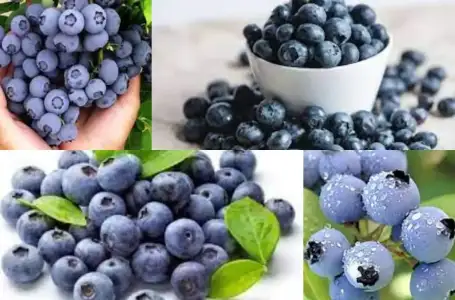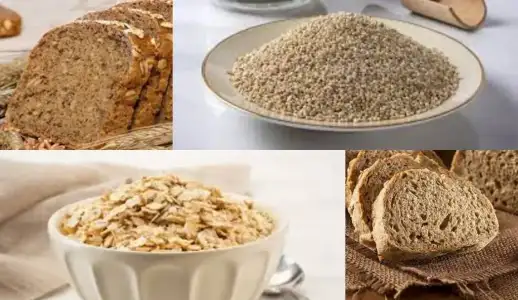To rely on a slice of peanut butter toast to help speed up your workout, you’re probably aware of the midpoint between food and power. And you may have noticed the relationship between diet and sleep, as it’s hard to suppress yawning after a big bowl of macaroni and cheese. But the mind-gut relationship doesn’t end there: What you eat can also contribute greatly to your mental well-being.
Reasonable food is in trouble There is a seemingly ever-growing understanding of how it can affect certain mental health conditions. For example, highly processed foods, as well as foods high in saturated fat, have been shown to inflame fear. This is in the middle, for example, foods high in antioxidants have been associated with lower levels of afflictions.
So what should your diet be if you want to ease your anxiety? Here are nine foods to reduce fear and why each can be so beneficial for your brain, according to experts.
Best Foods for Reducing Anxiety
Vegetables

Fiber-rich foods are broken down slowly in the body, which lowers blood sugar levels. It helps keep you stable and helps you feel full. Research has shown that when blood sugar levels rise and fall, strength and fear can also rise and fall; That’s why it’s so valuable to keep blood sugar stable. A 2010 study suggests that artichokes, cabbage, and beets are particularly good foods for pain.
Blueberries

Just like vegetables, fruits are packed with fiber that can play a role in easing fear. But blueberries are particularly helpful to include in an anti-anxiety diet. Blueberries have anthocyanins, a type of compound called flavonoids. Not only are they responsible for the blue hue of the tiny spheres, they also have antioxidant effects and have been shown to reduce oxidative stress. Oxidative stress – which is essentially the result of a large amount of free radicals (ie potentially damaging molecules) in the body – has been associated. This is why the anthocyanins in blueberries are so worthy of attention. Blackberries, cranberries, and cherries all also contain anthocyanins.
Fermented and Probiotic Powerful Foods
Scientific research indicates that probiotic-rich foods are particularly effective anti-inflammatories. Fermented foods are high in probiotics, which help replace the gut bacteria in your gut. This change can suppress voltage reflection through the hypothalamic-pituitary axis. Also known as HPA, this axis plays a major role in the body’s reflection on tension. Translation: Adding fermented foods (eg sauerkraut) and other potent foods (eg yogurt) to your diet can potentially help you maintain a more stable mind and take a calmer approach to worrying triggers or situations.

What’s more, your gut produces more than 90 percent of your body’s serotonin and about 50 percent of your body’s dopamine – two neurotransmitters responsible for regulating your mood. So, when your gut is disrupted – think about it: an imbalance of the microbiome or an imbalance of good and lousy bacteria – it is quite possible that neurotransmitters are not produced efficiently, thereby negatively impacting your mental well-being. However, probiotic-rich foods have the power to re-stabilize your gut and, as a result, improve your mental well-being.
Nuts and Seeds

Nuts and seeds are considered outstanding anti-anxiety foods. Because omega-3 fatty acids, a nutrient directly related to reducing fear, and magnesium, which has been shown to improve the symptoms of distress. One study found that people with magnesium deficiency were more likely to feel fussy. While the aforementioned 2010 study suggested that walnuts and pecans may be beneficial thanks to their high antioxidant content, brazil nuts contain impressive magnesium. And you shouldn’t forget chia seeds, which are considered the best choice thanks to their high levels of omega-3s.
Legumes

Mood-boosting legumes such as chickpeas, lentils, and beans, according to the National Institutes of Health (NIH). They’re also a decent source of time, and one of the many reasons B vitamins are so valuable is because they’re involved in neurotransmitter production and help neurotransmitters connect with each other, according to research. This, in turn, can help increase feelings of satisfaction and reduce feelings of worry.
What’s more, a study from both 2017 and 2021 shows that individuals who don’t get enough B vitamins are more likely to experience distress as well as depression. A 2018 study found that individuals who consume foods high in B vitamins have better anxiety and tension scores than those who do not.
Fish

Of course, nuts and seeds are great sources. But it’s not just them: Fish is another powerful source of this nutrient, making it another worthy addition to your diet to reduce anxiety. However, if you don’t eat fish, you can reap the same mental health benefits by eating seaweed, which is a vegan-friendly way to get your due from this nutrient.
There are two types of omega-3 fatty acids, eicosapentaenoic acid (EPA) and docosahexaenoic acid (DHA), both of which are believed to regulate neurotransmitters and reduce inflammation, according to a 2015 scientific review. Therefore, a diet strong in EPA and DHA (omega-3 fatty acids) through sources such as salmon, mackerel, sardines, and seaweed can potentially help reduce their symptoms.
Whole Grains

Whole grains are packed with many of the aforementioned fear-reducing nutrients, making it one of the best dietary choices for eating for your mental well-being. brings. However, they are especially rich in dietary fiber, B vitamins and magnesium. According to the Mayo Clinic, complex carbohydrates (like whole grains) are thought to increase the level of serotonin in your brain, thereby providing a calming effect. Opting for oatmeal, quinoa, and wholemeal bread—in the middle of many other whole-grain meals—can potentially play a role in alleviating fear and flourishing.
Spices

Adding spices and herbs to your meals does more than add flavor; It also reinforces brain health at the same time. This is because herbs can help reduce inflammation, and remember, inflammation and fussiness are often linked. A number of specific anti-inflammatory herbs to try in cooking more often include turmeric, ginger, rosemary, garlic, and cardamom.
Dark chocolate

You already know that a chocolate snack or dessert can make you feel good, but it’s actually scientifically related to helping with fussiness. This is because dark chocolate is rich in magnesium. What’s more, dark chocolate is packed with polyphenols, particularly flavonoids. (Yes, just like blueberries.) While polyphenols are known to be powerful antioxidants that help prevent chronic disease, the flavonoids in dark chocolate, in particular, may have the ability to benefit brain function.
However, if you’re looking for ways to eat to reduce anxiety, consuming some dark chocolate (some studies suggest 40 grams per day) may be a sensible addition to your diet. Be sure to choose dark chocolate over milk chocolate. Experts typically recommend varieties with at least 70 percent cocoa content or higher.

